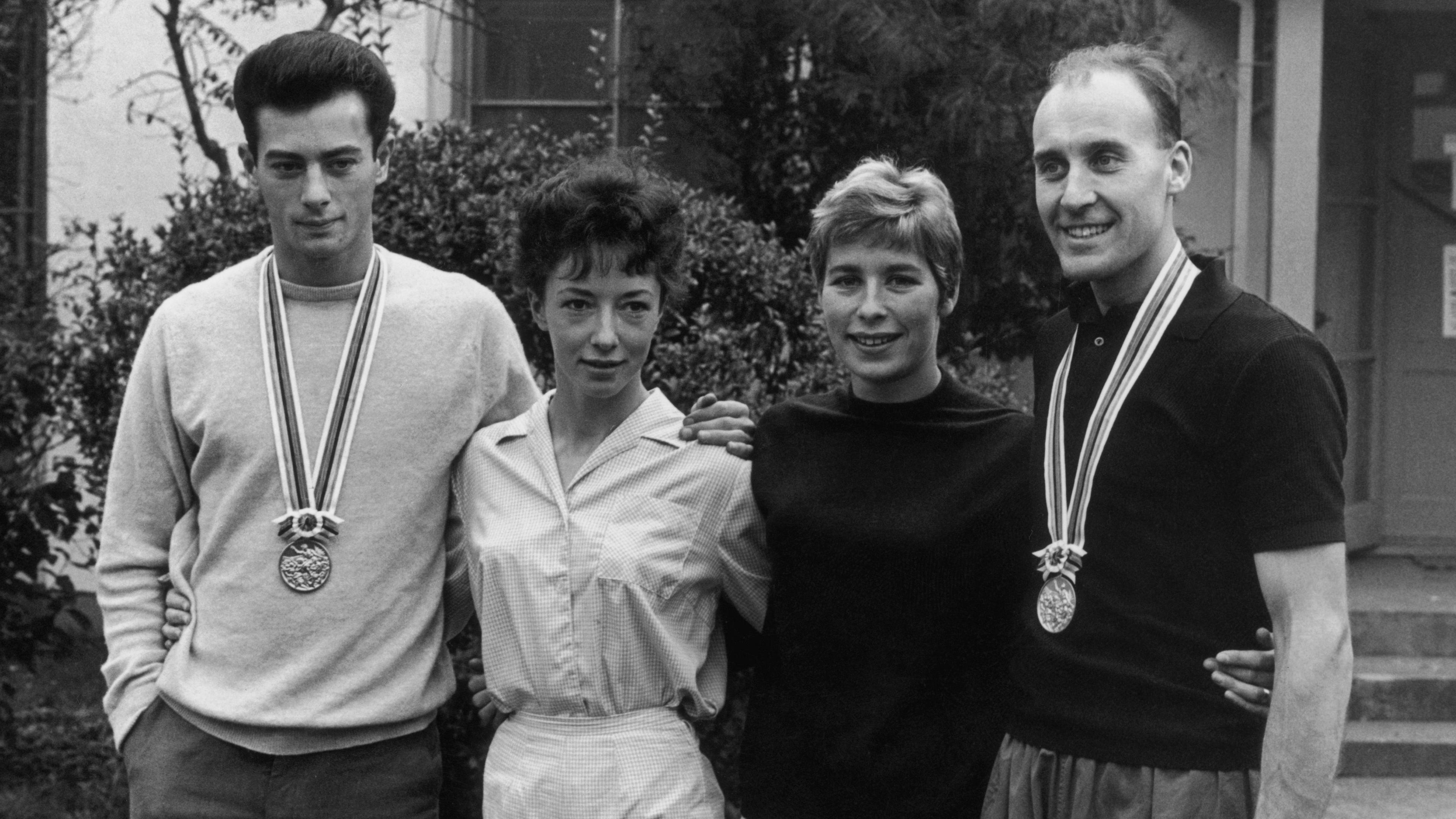Lynn Davies recalls Olympic gold 60 years on
Lynn 'The Leap' Davies remembers his iconic Olympic gold
- Published
As he stood preparing for his now legendary fifth round jump at the 1964 Olympic Games, Lynn Davies recalled some wise words from his coach Ron Pickering.
"When you’re on the runway, watch the flag at the top of the stadium because that’s a good indication of the wind," he said.
Conditions for the long jump final at the Tokyo Games had been the worst possible, with strong headwinds, torrential rain and puddles on the cinder track.
Davies had overheard the world record holder Ralph Boston tell a team mate he did not think anyone capable of jumping eight metres that day.
But as he watched that faithful flag drop, the Welshman knew his window of opportunity had opened.
He tore down the runway, hit the board and launched himself into the sodden sand.
The scoreboard turned around and it showed 8.06m.
That distance not only earned Davies the Olympic title, but the lifelong nickname of Lynn 'the leap'.
The final round of jumps had been a tense wait for the 22-year-old from Nantymoel.
Soviet Union athlete Igor Ter-Ovanesyan had been one of the hot favourites but even he could only manage 7.99m.
And then up stepped the reigning champion Boston from the USA.
His mark looked close, but he was 4cm short of Davies' fifth-round effort.
Davies credits his mental resilience that day - well that and a little bit of fortune.
"You work very, very hard and have this dream of going to the Olympic Games and being selected and maybe reaching the final," Davies said earlier this year.
"It needs a lot of dedication, a lot of ambition and on the day itself you need a little bit of luck."

Lynn Davies, Ann Packer, Mary Rand and Ken Matthews all won athletics gold medals for Britain at the 1964 Olympics
Boston died last year aged 83, but was reunited with Davies on the 50th anniversary of the 1964 Games.
"It was rainy, rainy, rainy," Boston told BBC Radio Wales at the time.
"When it rained in America I tried not to go out in it so I wasn't prepared for it. It was one of the most horrendous days I've ever competed in.
"But I always said it behoved a champion to take advantage of whatever's there and that's what you [Davies] did and all the best to you for doing it."
Davies said the comments he overheard Boston making about the weather had rallied him.
"I'd looked up to Ralph and Igor as unbeatable - they were my heroes," Davies said.
"But when I heard Ralph say that, I realised the conditions were tough for them too, I thought I had a chance because I'd jumped eight metres back home in Wales in similar conditions."
Davies would go on to to cement his status as one of Britain's finest athletes by becoming the first from any country to hold Olympic, European and Commonwealth titles at the same time.
He won Commonwealth gold in 1970 and European bronze in 1969 while his British record 8.23m from1968 was not broken until 2002.
Ten years later Britain finally got to celebrate another gold medal in the men's long jump when Greg Rutherford claimed the title in London 2012.
Davies retired from competition in 1973 and went on to become the technical director of Canadian athletics before preparing the British team for the 1980 Moscow Olympics.
He also held the role of President of UK Athletics, did commentary work for the BBC and worked as a lecturer at Cardiff Metropolitan University where he inspired many future generations.
Davies was one of the first five athletes inducted into the Welsh Athletics Hall of Fame in 2007, the year after he was appointed a Commander of the Order of the British Empire (CBE) for services to sport.